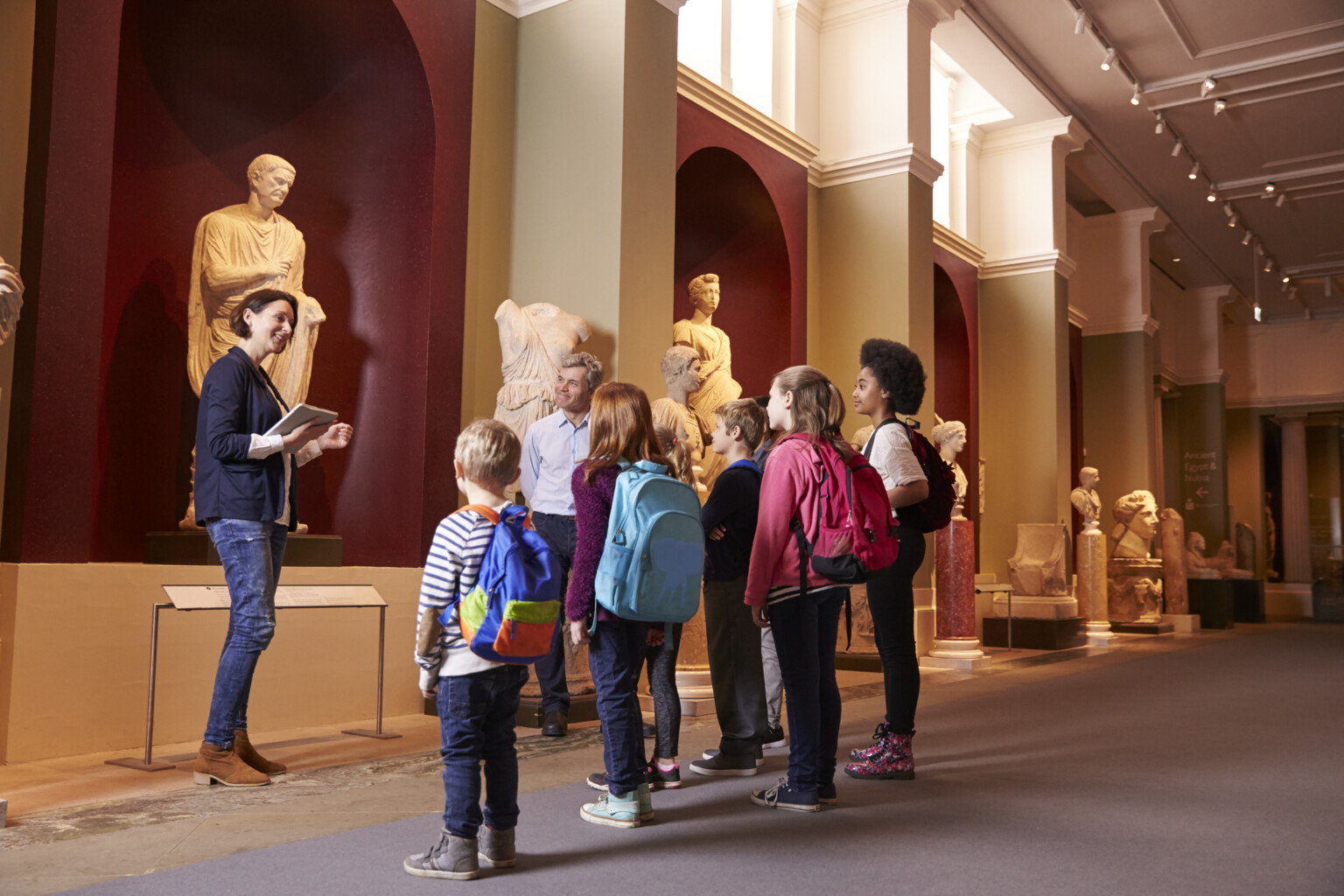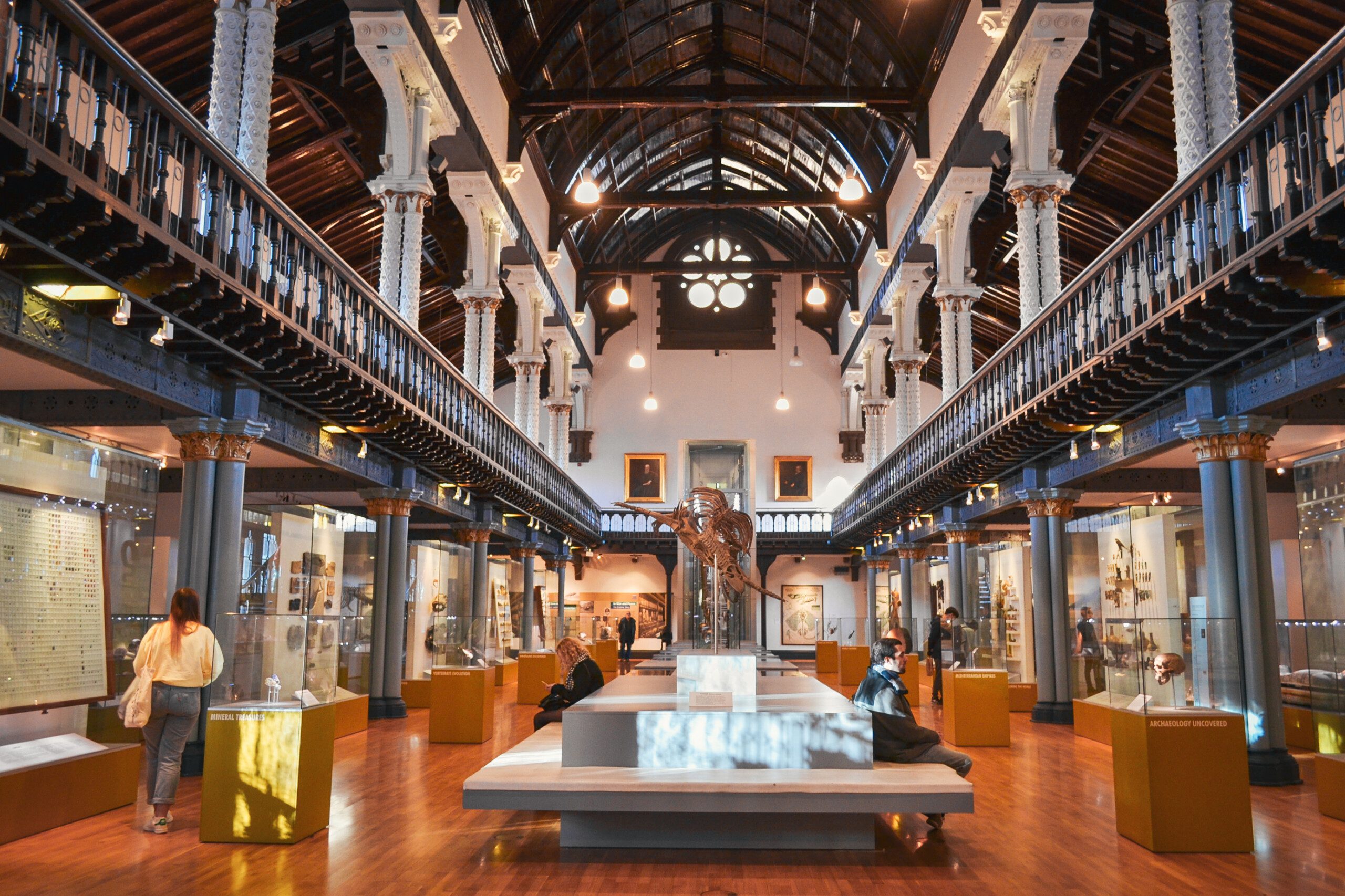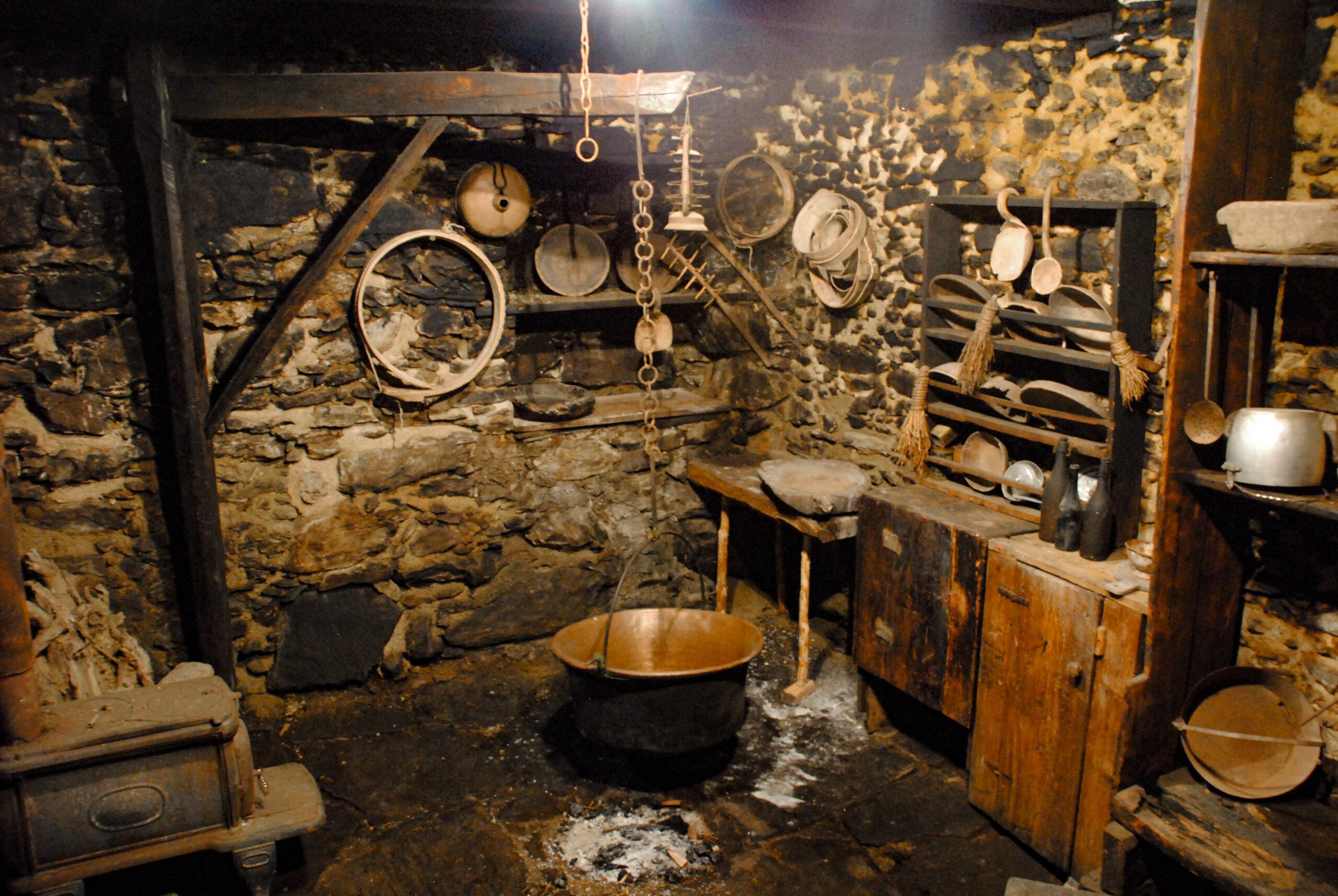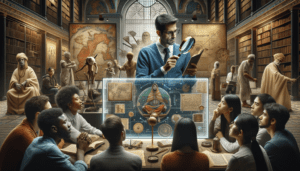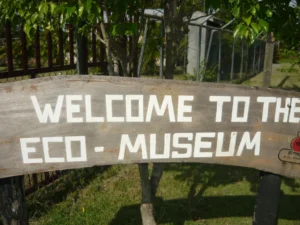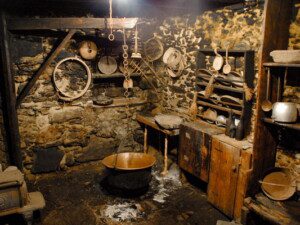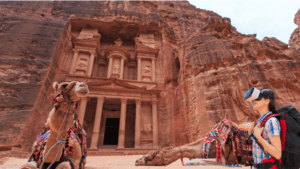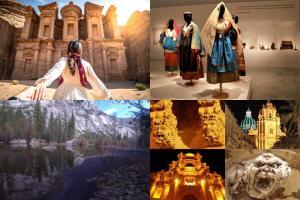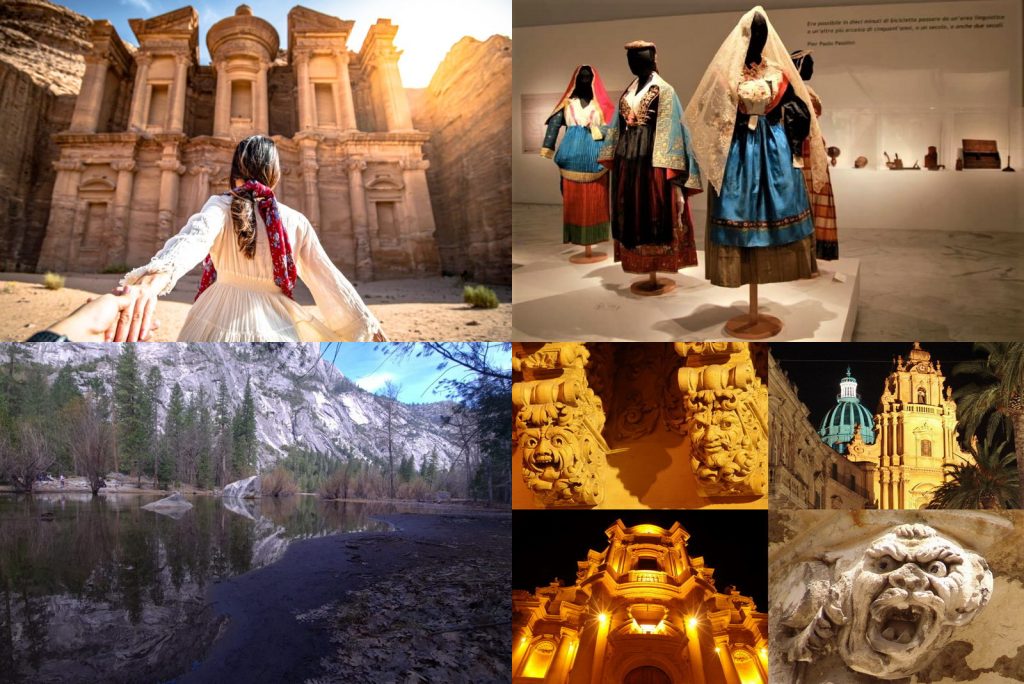Cultural Event Manager: Reference scheme
 AI image
AI image
Scheme C) Unregulated profession built without regulatory references.
The reference scheme is based on the 'modelSkills Cycle' and is in line with the 'Tourism, Arts, Heritage Competence Framework (TAH-CF)'. the TAH-CF is defined in accordance with the European Qualifications Framework (EQF), the Recommendation of the European Parliament and of the Council 2009/C 155/02 (ECVET) and the APNR (Non-Regulated Professional Activities) scheme adopted by UNI for the technical standardization of unregulated professions.”
Description
PTUMN2: Cultural Event Manager (VI Level EQF)
The Cultural Event Manager is a professional figure, with a high intellectual content, specialized in the conception, planning and organization of cultural events. The events can also be very different from each other: cultural events, shows, conferences, exhibitions, fairs and parties. Collaborating closely with artists, cultural institutions, Cultural Heritage Interpretation Centers (CEIP), museums and ecomuseums, the Cultural Event Manager is committed to transforming each cultural event into a significant and culturally enriching experience for the event's users. This role implies a profound knowledge of the artistic and cultural sector of reference, as well as adequate skills to create experience paths of interpretation of cultural heritage, in the management of cultural locations, in the logistical management of the event and in communication with the public and stakeholders.
This figure can practice his profession both within public and private bodies as an employee, as an independent consultant or simply as responsible for his own cultural offerings.
Standards of Reference
- European Qualification Framework (EQF)
- Recommendation 2009 / C 155/02 (European Credit System for Vocational Education and Training - ECVET)
- Law 4/2013 relating to professions not organized into orders and colleges (Italy)
Specific tasks and activities
Description of tasks
Fundamental tasks and specific activities
- T1: Identify the purpose, theme and objectives of the event
- T2: Analyze the Reference Context
- T2.1 Identify and Analyze the Cultural Heritage of reference
- T2.2 Identify and Analyze sector legislation
- T2.3 Identify and analyze stakeholders (who are the interested parties)
- T2.4: Evaluate the expectations of event users
- T2.5 Carry out the Feasibility Analysis of the Event
- T3: Conceive and plan the event
- T4: Communicate the event
- T5: Realize the event
- T5.1: Plan activities and prepare Permits and Authorizations
- T5.2: Prepare the Location
- T5.3: Managing economic resources (budget)
- T5.4: Coordinate human resources (staff)
- T5.5: Manage the event and ensure its correct execution
- T5.6: Verify and check compliance with applicable current legislation
- T.5.7: Manage Post-Event activities
- T5.8: Monitor the quality of the event
- T6: Improve events (continuous improvement)
Optional tasks
- T7: Organize cultural events of an educational nature
- T8: Interfacing in a foreign language according to the territorial target audience of the event users
Skills, Knowledge and Autonomy and Responsibility (Skills)
Note: The competences necessary for a profession, which include skills and knowledge, constitute a dynamic whole. These may vary depending on specific territorial contexts and are subject to changes over time due to factors such as technological evolution or other sectoral developments. Therefore, the examples of skills and knowledge presented here are to be considered purely indicative and not exhaustive, and will be subjected to constant revisions and updates.
(Version 1.1)
Task T1: Identify the purpose, theme and objectives of the event
Ability
- SP70: Identify goals and objectives of the event
- SP127: Identify and apply the principles of the thematic approach to events
Additional required knowledge:
- KS109: Events: Classification and basic concepts
- KS183: Characteristics of Cultural Events
- KS369: Principles of thematic approach applied to events
Task T2: Analyze the Reference Context
- Business: T2.1 Identify and Analyze the Cultural Heritage of reference
Ability
- SP105: Cultural Heritage relevant to the (eco) museum collection (Identify, analyse, document, relate, contextualise, develop historical-comparative relationships)
- ST5: Identify and apply the basic IT and telematic tools
- ST6: Identify and apply IT tools for communication
- ST11: Use information search tools
- SP94: Territorial context from a cultural and historical anthropological point of view (analyze, document, report)
- SP100: Local cultural identities (Identify, analyse, interpret, document, report)
- SP126: Interpretation Experience Paths (identify, analyze, document, report)
Based on the type of event, the general skills indicated must be particularly in-depth in the specific sector to which they belong which can be, for example: Identifying, analysing, documenting, relating, contextualising, developing historical-comparative reports, identifying the relevance and scope historical-cultural origin of the cultural assets involved in the events. (non-exhaustive list):
- SP29: Unesco Heritage (Identify, analyse, document, report)
- SP30: Naturalistic Heritage (Identify, analyze, document, report)
- SP31: Historical, Artistic and Archaeological Heritage (Identify, analyse, document, relate)
- SP32: Intangible Heritage (Identify, analyse, document, report, interpret)
- SP33: Food and Wine Heritage (Identify, analyse, document, relate)
- SP53: Anthropological Heritage (Identify, analyse, document, relate)
- SP54: Paleoanthropological Heritage
Additional required knowledge:
- KS145: Document management principles, methods and techniques
- KS194: Local cultural endogenous attractions
- KS195: Territorial natural endogenous attractions
- KS196: Induced territorial attractions
- KS237: Ecomuseology
- KS240: History of popular traditions
- KS249: Heritage Interpretation
- KS263: Local cultural identities
- KT6: IT tools for online communication and research
- KS352: Elements of Tangible and Intangible Cultural Heritage
General knowledge of Cultural Heritage must include both tangible and intangible assets and be particularly in-depth in the sectors relating to museum collections. Below is an illustrative and non-exhaustive list
- KTU Unesco Heritage
-
- KTU1: Unesco Conventions on Material Cultural Heritage
- KTU2: The World Heritage List (WHL)
- KTU3: UNESCO Institutions for Cultural Heritage
- KTU4: World Heritage sites at risk
- KTU5: The Proposal List of World Heritage
- KTU6: The procedures for the recognition of Unesco sites
- KTU7: Guidelines for drafting and implementing management plans
- KTU8: Models for the implementation of Management Plans
- KTU9: Sites on the World Heritage List
- KTU10: Unesco Global Biospheres and Geoparks
- KTU11: Creative Cities Network
- KTU12: Unesco Conventions on Intangible Cultural Heritage
- KTU13: The World List of Intangible Cultural Heritage
- KTU14: Other Programs for the protection and promotion of Cultural Heritage
- KTN Natural Heritage
-
- KTN1: Protected Natural Areas
- KTN2: Parks and Nature Reserves
- KTN3: Nature reserves
- KTN4: Natura 2000 network
- KTN5: Sites of Community Interest (SIC)
- KTN6: Special Protection Areas (SPAs)
- KTN7: Special Areas of Conservation (SAC)
- KTN8: The Wetlands
- KTN9: The Geosites
- KTN10: Management tools for protected natural areas
- KTN11: Landscape Plans
- KTN12: The environmental protection and supervisory bodies
- KTN13: Strategies for Biodiversity
- KTI Intangible Heritage
-
- KTI1: Demo-ethno-anthropological heritage (DEA)
- KTI2: Registers of Intangible Heritage
- KTI3: Religious Rites and Festivals (Celebrations)
- KTI4: Crafts, Knowledge and traditional working techniques (Knowledge)
- KTI5: Traditions and Oral Expressions (Expressions)
- KTI6: Performing Arts
- KTI7: Places of Memory and Symbolic Places
- KTI8: Places of Myth and Legends
- KTI9: Places of the Sacred
- KTI10: Places of historical events
- KTI11: Places of historical personalities and culture
- KTI12: Historical places of work
- KTI13: Places of the literary story
- KTI14: Places of television and film storytelling
- KTI15: Ethno-anthropological museum heritage
- KTI16: Ethnomusicological Heritage
- KTI17: Literary parks
- KTS Historical, Artistic and Archaeological Heritage
-
- KTS1: Archaeological Tourism
- KTS2: Parks and Archaeological Sites
- KTS3: Paleolithic, Mesolithic and sites of tourist interest
- KTS4: Neolithic, Metal Age and sites and sites of tourist interest
- KTS5: Main architectural styles
- KTS6: Tourist sites from the Greek and Roman times
- KTS7: Testimonies of Byzantine and Lombard civilization
- KTS8: Sites of tourist interest from the Norman period
- KTS9: Baroque and Rococo
- KTS10: Neoclassical Architecture
- KTS11: The Testimonies of Liberty
- KTS12: The historic villages
- KTS13: The Museum Heritage
- KTE Food and Wine Heritage
-
- KTE1: Typical products
- KTE2: Food and wine tourism
- KTE3: The quality certification of DOP, IGP and TSG food products
- KTE4: Traditional Agri-Food Products
- KTE5: Other forms of recognition of typical products
- KTE6: The wine roads
- KTE7: The production specifications
- KTE8: Organic products
- KTE9: Farmhouses
- KTE10: Quality rural and agri-food districts
- Business: T2.2 Identify and Analyze sector legislation
Ability
- SQ1: Analysis skills
- SP1: Identify and evaluate the applicability of the rules for the protection and use of the Cultural and Landscape Heritage
- SP2: Identify and evaluate the applicability of the legislation on safety in the workplace with relevance to its reference sector
- SP3: Evaluate the applicability of funding for the sector supply chain
- SP22: Identify and evaluate the applicability of Sector Policies
- SP25: Evaluating the applicability of Programs, Conventions and Institutional Acknowledgments
- SP42: Verify the correct application of the legislation on privacy
- SP132: Identify and analyze legislation on permits and authorization for events
- SP133: Identify and analyze legislation regarding sustainable events
Additional required knowledge:
- KS39: The legislation for the protection and use of Cultural Heritage
- KS47: The legislation on privacy and the tourism sector
- KS49: The legislation on safety in the workplace in the tourism sector
- KS50: Funding for the Tourism and Cultural Sector
- KS52: Consumer protection legislation
- KS188: The legislation relating to Authorizations and Permits regarding events
- KS111: Sustainability of Events
Activity: T2.3 Identify and analyze stakeholders (who are the interested parties)
Ability
- SQ1: Analysis skills
- SP24: Identify the Strategic Stakeholders
Additional required knowledge:
- KS27: Local tourism systems
- KS28: Institutions and tourism promotion
- KS24: Destination Management Organization (DMO)
- KS92: Supervisory and protection bodies
- KS121: Relations with institutions
Activity: T2.4 Evaluate the expectations of event users
Ability
- SQ1: Analysis skills
- SQ2: Ability to synthesize
- SQ10: Analyzing the explicit, implicit and binding requirements of users
- SP15: Analyze event demand
Additional required knowledge:
- KQ2: Quality Management - Factors, indicators and standards of quality in services
- KS29: Tourism Marketing
- KQ33: Quality Management - Stakeholder Requirements Analysis
- KS183: Characteristics of Events
- KS91: Theories and Models of Experiences
- KS93: Characteristics of Experiences
T2.5 Carry out the Feasibility Analysis of the Event
Ability
- SQ1: Analysis skills
- SP1: Identify and evaluate the applicability of the rules for the protection and use of the Cultural and Landscape Heritage
- SP4: Identify and evaluate the applicability of the Tourism Legislation
- SP13: Analyzing and evaluating the territorial context to identify strengths and weaknesses
- SP16: Perform SWOT Analysis
- ST13: Identify and apply the contractual instruments and models
Additional required knowledge:
- KQ33: Quality Management – Techniques for analyzing the requirements (needs) of interested parties
- KS3: Experiential Tourism
- KS4: Sustainable Tourism
- KS5: Accessible Tourism
- KS7: Cultural Tourism
- KS17: Integrated Tourism
- KS96: Management costs
- KS99 Risk Management
- KT4: Risk management techniques and methodologies
- KT13: Contracts
Task T3: Conceive and plan the event
Ability
- SQ1: Analysis skills
- SQ5: Planning skills
- SQ6: Programming skills
- SQ10: Analyze the explicit, implicit and mandatory requirements (needs) of real and potential users
- SQ11 Design processes and services
- SQ12: Implement, document and classify core processes
- SQ14: Propose process changes to facilitate and rationalize improvements
- SQ18: Identify, understand and evaluate quality factors, indicators and standards
- SP1: Identify and evaluate the applicability of the rules for the protection and use of the Cultural and Landscape Heritage
- SP3: Evaluate the applicability of funding for the sector supply chain
- SP4: Identify and evaluate the applicability of the Tourism Legislation
- SP16: Perform SWOT Analysis
- SP17: Contribute to the development of the cultural offer (event)
- ST14: Identify and apply Risk Management tools and models
- ST16: Identify and apply the Corporate Organizational Models
Additional required knowledge:
- KQ11: Quality Management – Design and development
- KQ22: Quality Management - Factors (dimensions) and quality indicators
- KQ11: Quality Management - Design and development;
- KS91: Theories and Models of Experiences
- KS93: Characteristics of Experiences
- KS95: Designing Experiences
- KS99 Risk Management
- KS110: Events: The Location
- KS111: Sustainability of Events
- KS185: Event Planning
- KS188: The legislation relating to Authorizations and Permits regarding events
- KS198: Support services to the basic offer
- KS206: Competent services and authorities in the event of accidents or sudden illnesses
- KS216: Principles of Sustainable Development
- KS223: Territorial context from a cultural and historical anthropological point of view
- KS232: Environmental Protection and Sustainable Development Regulations
- KS236: Museology, Museography and New Museology
- KS249: Heritage Interpretation
- KS252: Planning and implementation of cultural events
- KS266: Event design techniques and methodologies
- KS352: Heritage Interpretation Experience Centers (CEIP)
- KS370: Principles of the aesthetic approach applied to events
- KS402: Cultural Exhibition Experience
- KS404: Museum/Ecomuseum Experience
- KT5: Basic IT and telematic tools
- KT16: Corporate Organizational Models
Task T4: Communicate the event
Ability
- SP8: Develop a Communication Plan for the reference sector
- SP11: Identify the web technologies to be used for tourism marketing
- ST1: Ability to communicate
- ST6: Identify and apply IT tools for communication
- SP12: Identify web technologies to be used for event marketing
Additional required knowledge:
- KQ34: Quality Management - Internal and external communication
- KS30: Tourism and Communication
- KS31: The Communication Plan
- KS32: Online Marketing and Promotion
- KS33: Web Marketing Techniques
- KS34: Social Marketing
- KS100: Information technology for communication
- KS104: Communication and Conflict Management
- KS105: Communication styles and effective communication
- KS121: Relations with institutions
- KT27: IT tools for communication
- KT28: Videoconferences and Webinairs
Task T5: Carry out the event
Activities: T5.1: Plan activities and prepare Permits and Authorizations
Ability
- SQ3: Organizational skills
- SQ5: Planning skills
- SQ7: Ability to produce improvement plans
- SQ13: Implementing Procedures and Operating Instructions for Quality
- SP38: Apply set-up techniques for relevant exhibition events
- SP40: Knowing how to organize the spaces where the services and their offers are made
- SP42: Knowing how to organize the location and the "staging" of the event
- SP132: Enforce regulations regarding permits and authorization for events
Additional required knowledge:
- KQ4: Quality Management - System Documentation; the Manual; Procedures and Operating Instructions;
- KQ7: Quality Management - Planning and monitoring of the service
- KQ26: Quality Management – Event quality standards
- KQ8: Quality Management - The procurement system
- KS101: Basic IT and Telematics
- KS102: Theater as a model for staging experiential events
- KS110: Events: The Location
- KS186: Event Planning
- KS188: The legislation relating to Authorizations and Permits regarding events
Activity: T5.2: Managing economic resources
Ability
- ST9: Use corporate accounting and administration tools
- ST20: Identify and apply reporting tools
Additional required knowledge:
- KQ8: Quality Management - The procurement system
- KS96: Management costs
- KT21: Reporting tools and procedures
Activity: T5.3 Coordinate human resources
Ability
- SQ3: Organizational skills
- SQ4: Ability to control
- SQ9: Identify skills gaps
- ST1: Ability to communicate
- ST2: Group management skills
- ST3: Conflict management skills
- ST12: Assign roles and tasks in management processes
Additional required knowledge:
- KQ5: Quality Management - The management of human resources
- KS104: Communication and Conflict Management
- KS105: Communication styles and effective communication
- KT2: Group management techniques
- KT3: Conflict Management Techniques
- KT12: Techniques and methodologies for human resource management
- KT24: Leadership and Group Psychology
Activity: T5.4: Manage the event and ensure its correct execution
Ability
- SQ3: Organizational skills
- SQ4: Ability to control
- SP14: Contribute to the correct management of cultural events
- SP40: Knowing how to organize the spaces where the services and their offers are made
- SP41: Know how to organize the location and staging of experiential offers
- SP131: Apply experiential techniques and methodologies in the events sector
Additional required knowledge:
- KQ9: Quality Management – Service provision;
- KQ10: Quality Management - Identification and traceability;
- KS187: Locations and Places used for events (Protection)
- KS189: Exhibition Methodologies and Techniques
- KS402: Experiential techniques and methodologies in the events sector
Activity: T5.6: Verify and control compliance with applicable current legislation
Ability
- SQ4: Ability to control
- SP1: Identify and evaluate the applicability of the rules for the protection and use of cultural heritage
- SP2: Check the correct application of the safety regulations in the workplace
- SP4: Verify the correct application of the Tourism Legislation
- SP42: Verify the correct application of the legislation on privacy
- SP95: Knowing how to apply the legislation in the museum and eco-museum sector
Additional required knowledge:
- KS39: The legislation for the protection and use of Cultural Heritage
- KS47: The legislation on privacy and the tourism sector
- KS49: The legislation on safety in the workplace
- KS52: Consumer protection legislation
- KS87: Privacy Policy in the Artistic and Entertainment Supply Chain
- KS88: Regulations on safety in the artistic and entertainment supply chain
- KS90: Copyright Law
- KS106: Tourism Legislation
- KS117: Entertainment Code
Activities: T5.6: Manage Post-Event activities
Ability
- SP1: Identify and evaluate the applicability of the rules for the protection and use of cultural heritage (where applicable)
- SP2: Check the correct application of the safety regulations in the workplace
- ST20: Identify and apply reporting tools
Additional required knowledge:
- KS49: The legislation on safety in the workplace
- KS39: The legislation for the protection and use of Cultural Heritage
- KS111: Sustainability of Events
- KS213: Elements of Environmental Education and Sustainability
- KS216: Principles of Sustainable Development
- KT20: Waste disposal regulation
- KT21: Reporting tools and procedures
Activity: T5.8: Monitor the quality of the event
Ability
- SQ18: Identify, understand and evaluate quality factors, indicators and standards
- SQ19: Apply auditing tools
- SQ20: Apply monitoring methodologies and techniques
- SQ21: Apply Customer Satisfaction methodologies and techniques
- SQ22: Monitor and Evaluate the provision of services
Additional required knowledge:
- KQ13: Quality Management - Monitoring and measurement of processes and services
- KQ14: Quality Management - The Management of Non-Conformities and Corrective Actions
- KQ15: Quality Management - Evaluation of the quality of services
- KQ16: Quality Management - Internal inspections (Audit)
- KQ17: Quality Management - The ISO19011 standard
- KQ19: Quality Management - Conducting audits
- KQ31: Quality Management - Monitoring and audit
- KQ33: Quality Management - Monitoring and evaluation of the quality of events
Task T6: Improve events (continuous improvement)
Ability
- SQ14: Propose process changes to facilitate and rationalize improvements
- SQ16: Evaluate and analyze individual processes to identify corrective and improvement actions
- SP21: Identify and provide support for the choice and application of innovative technologies for the reference sector
- SQ8: Manage the change request process
- SP10: Apply tools for measuring and evaluating events
- SP20: Understanding the impacts of new technologies in the processes of your sector
- SP35: Analyzing and interpreting market trends
Additional required knowledge:
- KQ35: Quality Management - Continuous Improvement
- KS38: The new emerging technologies
- KS184: Evaluation of Events
- KQ26: Event quality standard
Task T7: Organize cultural events of an educational nature
Ability
- SP36: To carry out training and information with reference to the subjects related to one's profession
- SP45: Develop training / information projects in the reference sector
- SP46: Curate and manage training / information events in the reference sector
- ST22: Knowing how to apply tools, including IT tools, for drafting educational reports and documents
Additional required knowledge:
- KS112: Teaching techniques and methodologies
- KS127: Methodologies and techniques for the evaluation of training events
- KS128: Elements of Pedagogy
- KS129: Research and teaching methodologies relating to the exhibition sector
Task T8: Interface in a foreign language according to the territorial reference target of visitors
Ability
- ST8 Use foreign languages in the workplace according to the territorial reference target of visitors
Additional required knowledge:
- KS113: At least one foreign language in relation to the territorial reference target of visitors
Authority and Responsibility: VI level of the European Qualifications Framework
Profile Evaluation Criteria
To certify the possession of skills, it is proposed to take into consideration methodologies that take into account the following aspects in a non-mutually exclusive manner, i.e. possibly in combination with each other:
- Qualifications awarded in the academic field (Formal Learning)
- Specific Training (Non-Formal Learning)
- Work or Professional Experience (Informal Learning)
Work or professional experience can be demonstrated through various tools including:
- Curriculum Vitae
- Professional portfolio
- Objective placement on the market (awards, regional, national or international recognition)
- Publications (scientific or editorial)
Requirements for access to the professional figure
Since the professional figure is not organized in an order or college, the requirements may vary based on the relevant Professional Association or other criteria established by the individual interested parties. Below are the requirements adopted by AITOC - Italian Association of Tourism Professionals and Cultural Operators.
Reference diagram: Cultural Event Manager (SP/TAH-CF/PTUMN2)
- Having attended specific training courses for the professional figure in question organized/recognised by Universities, Institutes of Higher Artistic, Musical and Dance Education (AFAM), Regions or professional associations established pursuant to law 4/2013 and recognized by the Ministry of Business and Made in Italy (formerly MISE) and at least three exhibition events followed in the capacity of exhibition curator.
Or
- Having attended a specific training course whose contents and methods of evaluation comply with this sheet and at least six cultural events attended as Cultural Event Manager
Or
- At least two years of proven work or professional experience as a Cultural Event Manager and having attended additional training courses to update one's preparation as required by the professional figure in question.
Or
- At least five years of proven work or professional experience as a Cultural Event Manager
Or
- Be included in the Registers of Professional Associations established in accordance with recognized national legislation, provided that they refer to the professional figure. In Italy the requirement is met if the professional is included in a register held by professional associations established pursuant to law 4/2013 and recognized by the Ministry of Enterprise and Made in Italy (ex MISE) and has obtained a Quality and Qualification Attestation Professional under the law 4/2013
Related searches on the “ACTAS” Skills Archive Databases (UNDER IMPLEMENTATION)
Training courses that release the professional competence in question: PTUMN2 courses
Professionals with the relevant professional competence: PTUMN2 Professionals
Featured Heritage Interpretation
Featured training
Basic courses
High Specialization Courses








